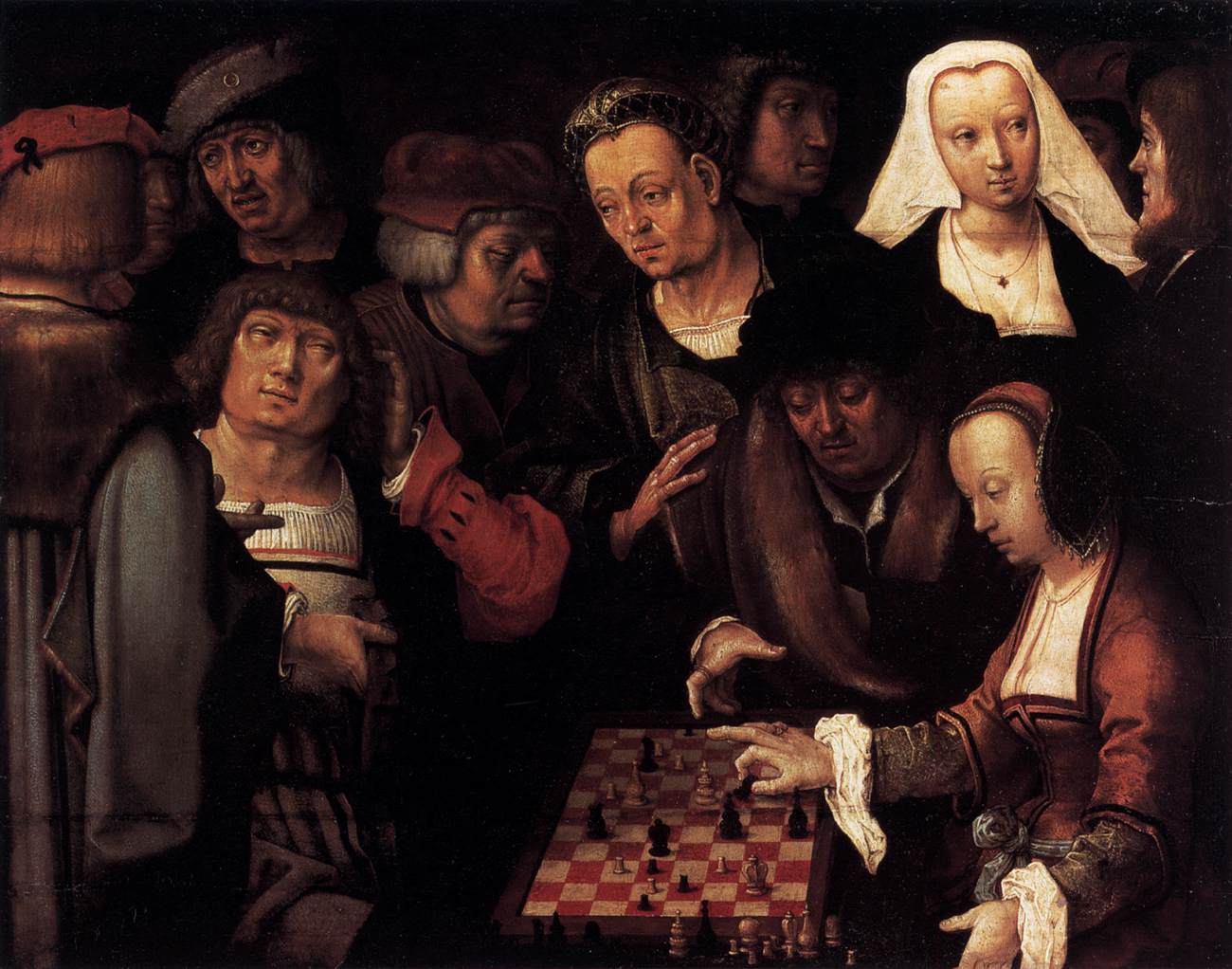Why Historical Thinking? A Lesson From Chess
5 May 2014 - 2:00pm
 Professional Chess, as I know it, is as much a game of memory, as it is strategy.
Professional Chess, as I know it, is as much a game of memory, as it is strategy.
One only needs to watch games played by grandmasters hard at work on the black and white board. Their grey matter memory banks are hard at work during these games, particularly the opening sequences. The first twelve to sixteen moves are often played at an exceptionally rapid pace, as though little strategic thought is occurring. In fact, little is occurring.
Since the sixteenth century, chess players have been keeping track of individuals chess games: documenting the moves and counter-moves of centuries' worth of matches. By the 1950s, a musty library in the Moscow Central Chess Club contained thousands of index cards documenting these games. At that time, only a handful of Russian players had access to the library. Before high profile matches, these players would head to the library, and request all the games of their opponent from "The Book." Taking hundreds of matches, the players would study these cards, literally tens of thousands of moves, hoping to anticipate the stratagems and sequences that might be utilized by their opponent.
Frederic Friedel, a chess analyst, and one of the few non-Russians to have seen the library, convinced the Russian Chess Federation in the 1980s to upload The Book onto an online database. Here, anyone could study the games in the library, and add to the database (at present, the database holds over 40 million games!). To some, this was a distressing development and Frederic's actions have made him the target of criticism by some in the chess community. At times he is even been booed by chess fans at major tournaments. For now, when two players face off in a major tournament, a certain phenomenon occurs: both players have already consulted the database, and have so much of The Book memorized that whole portions of the game are played in a noticeably rote manner, not dissimilar to the way a child who has played too much tic-tac-toe. Sometimes, whole games are played “within The Book”. The players simply re-play a previously played game from memory.
Inevitably, and refreshingly, for most games, there is still the moment where a player makes a move which brings the game "out of Book": the ability to play from memory is no longer an option. The players are playing a game which has never been played before. As you can imagine, for knowledgeable chess fans, this is a dramatic moment (for a surprisingly gripping piece on Friedel and The Book, listen to this portion from RadioLab's "Games" episode).
What implications can we draw for teaching history?
What Grandmasters Need:
For grandmasters, deep knowledge of previous chess matches is an integral part of their practice. They play not only their openings, but also middlegames and even endgames based on years of accumulated knowledge. However even more integral are strong deductive reasoning skills, spatial awareness, an active imagination, and a disciplined application of strategic principles. Removing any of these qualities and habits would leave the player crippled on the competitive circuit.
What Professional Historians Need:
For professional historians, deep knowledge of the "content" of their area of study constantly informs their practice. So is an equally deep understanding of how to source, contextualize, corroborate, and closely read historical evidence. Professional historians lacking expertise in either content or strategy would find their work quickly marked for revision.
What Novices Need:
It would be foolish for a teacher of chess to introduce chess to novice students by instructing them to read chess databases and memorize games. Not only would it rob novices of the joy of playing chess, it would also leave these players unable to play past what they have memorized. Instead, it would be advisable for the teacher to encourage students to actually play chess, experientially discovering and understanding the strategies which produce the delightful subterfuges and attacks documented in The Book. Likely this approach would produce better chess players, and also produce chess players with a natural willingness to delve into chess databases in order to play from a more knowledgeable position.
In a similar way, we might advise history teachers to introduce their students to history in the same manner: to first teach students the nature of historical evidence, and how to muster it in order to form plausible arguments within the benchmarks of historical thinking. This, like the experience of the chess novice, would teach students the widely applicable skills of the historian, while also growing their content knowledge within their area of study. At the same time, students would be engaged in the rigorous activity of constructing historical narratives. This activity, while if not joyful, might at the very least be more engaging than heading to the library to, say, read cue-cards of the dates and consequences of western expansion in Canada.
If there was an amphitheater packed with rabid history fans watching our history classrooms, perhaps they too would relish the dramatic moments when our teaching went “out of book”. When students simply re-search the answers provided for them in a textbook, they are little different from two chess players re-playing a game from Friedel's database. Knowledge from any chess database or history text is valuable, but perhaps our goal should be to give chess novices the opportunity to play chess before asking them to memorize The Book, and history novices the opportunity to "do" history before asking them to memorize their books.
How have you taught beyond 'the book'?

